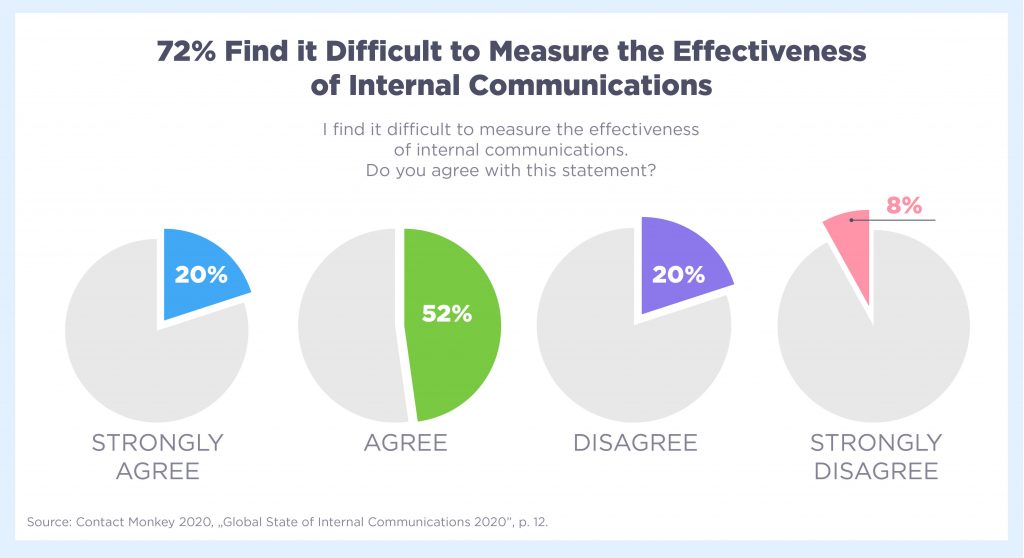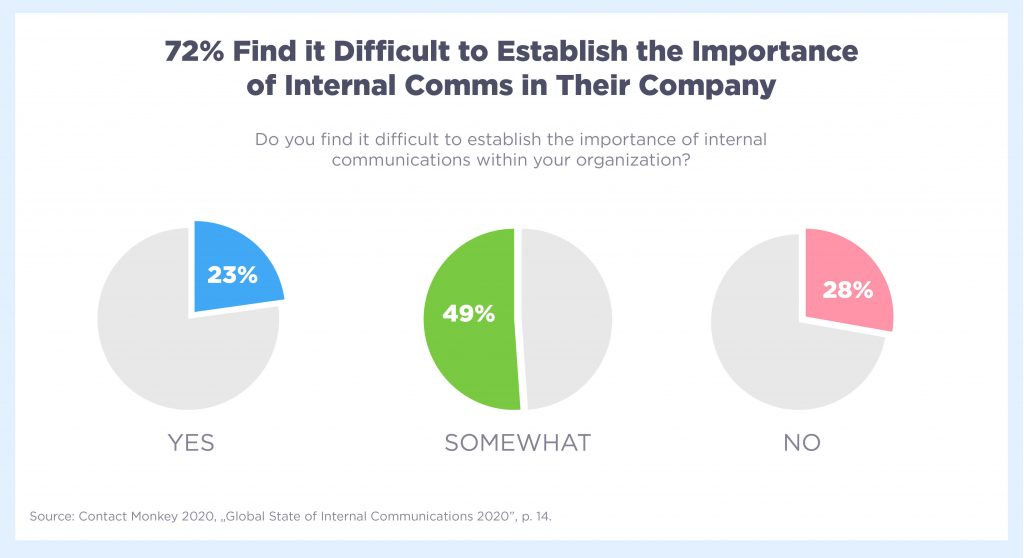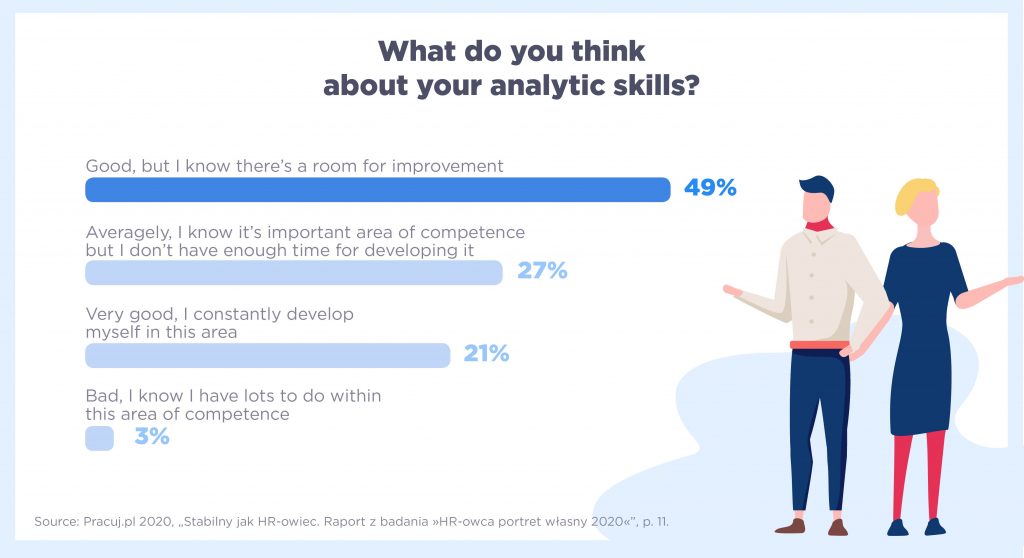
Analyticosis” came through my mind while I was reading the “Global State of Internal Communications 2020” from Contact Monkey. The company – which by the way provides tools for creation and analysis of corporate mailing – says that for people responsible for internal communication at companies, to measure the effectiveness of their own activities is one of the greatest challenges. As many as 72% of the respondents find it problematic.

Authors of the study point to the fact that one difficulty entails several others. If we don’t measure (or if we measure poorly), so we lack data to assess the efficiency of a solution. When our assessment is not based on data, it is hard to advocate for it in front of the manager. The result – at least according to the respondents – is that 72% of them (the percentage coincidence probably accidental) has difficulty justifying why their department is meaningful for the company.

Before we all get totally depressed… It’s good to remember that Contact Monkey not only studies the situation of communication specialists, but also sells them tools to create and analyze mailings. Similarly to the famous Gallup Organization, as Luke Thomas, co-founder of Friday software company, points out in his post on Medium.com. Thomas notes that the abovementioned research center each year publishes alarming data about the low level of engagement among American employees, and also happens to be selling products that can improve the situation.
But let us get back to analyticosis.
After reading another report (Pracuj.pl, “Stable as HR specialist. Report from study »HR specialist’s self-portrait 2020«”) one might think the disease is also spreading among Polish internal communication experts (study was conducted on a wider group of HR experts).
The author of the report, Iga Pazio – when discussing the meaning of HR competencies – was surprised to notice that “once again HR processes’ analysis and project management were not among the most important competences” (p. 9). According to the respondents, good organization at work and being effective in contacts with internal customers were more important. At the same time, as many as 79% of the respondents chose overall answers pointing that they should improve their analytical skills.

As I read the report, it seems to me data analysis is some kind of a mystical, elusive skill that one has to master.Without it, we are just babies in the woods: the superiors will belittle us because we still haven’t learnt to make charts in Excel. My impression gets even deeper as I read the comment to the Pracuj.pl’s report by Marta Pawlak-Dobrzańska of Great Digital. She says “[…] business loves to talk about results on the data level and communicating HR activities and their results with the use of data gives more power to the argumentation, a more powerful HR position, more effectiveness, and satisfaction from taken up actions” (p. 12).
Pawlak-Dobrzańska is probably right. I suppose when you want to be an HR Manager and eventually make it to the Management Board, you must master Excel. After all, “business loves to talk about results.”
The problem is that HR – which also involves internal communication – contacts with people, and not data in charts. That is why I see analyticosis as a disease – it fetishizes quantitative data, and it seems to forget that if we put qualitative data aside, we will be outmaneuvered. Even if charts in Excel look nice and tidy.
There is a lot of fuss about data analysis in internal communication. Often the basic problem is lack of reflecting on questions we would like to get answered before the study begins. And there’s more: if we receive a company-wide report from studies we did not design, but we still would like to take something from it, we still should know, what we would like to know. And seek for the answers within the data.
Kategorie: top trends, B2E